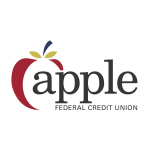
Apple FCU Provides Tips on Tapping Into a Home’s Equity as Pandemic Spurs Time at Home and Rates Are at a Low
FAIRFAX, Va.–(BUSINESS WIRE)–#AppleFCU–Low rates and consumers with more time—a by-product of the pandemic—have increased interest in making home improvements. Apple Federal Credit Union, which has 21 branches throughout Northern Virginia, is offering tips to commonly asked questions it receives from members about how to responsibly leverage home equity to get their houses and finances in better shape.
“The pandemic interrupted and changed life for all of us. For many consumers who are now working from home, they’ve started working on or thinking about home projects that they’ve put off. With rates at some of the lowest in modern history, tapping into your home’s equity can be a great option for making home upgrades,” says Jeff Long, Chief Lending Officer, Apple Federal Credit Union.
For many, their home’s equity is the answer for creating an outdoor living area, building or expanding decks, upgrading kitchens and bathrooms, consolidating debt, or paying for college. Consumers who have paid their mortgage consistently over the years, coupled with property value increases, have probably built up some healthy equity. Consumers looking to tap into the equity should consider these five tips to ensure it makes sense for them:
-
Check the numbers before you venture out to speak to lenders: Lenders will look at many things, but primarily the following three items to begin to determine the kind of loan for which consumers qualify.
- Equity in the home of at least 15 percent to 20 percent of its fair market value, as determined by an appraiser. This calculation may also be described as a loan-to-value ratio, which is the amount of all your mortgage and /or equity loans, compared to the value of your property.
- A credit score of 620 or higher, a track record of paying off debt and a documented ability to repay the loan.
-
A debt-to-income ratio—the monthly debt payments divided by pretax income—typically below 45 percent for a fixed-rate loan and below 40 percent for a home equity line of credit.
-
Weigh your options: The loans consumers qualify for depend on factors like credit history, income and the value of their home. There are numerous loans out there: fixed rate, home equity line of credit, interest only, but shop around because each lender has its own products. For example, Apple is one of few institutions that offers interest-only loans. Lenders can help determine which product is best.
-
Know your options for paying down debt: A cash out refinance allows homeowners to get cash from their home’s equity. Home loans typically have much lower rates than other types of debt, such as credit cards, auto and student loans. A cash out refinance can be a way to pay down debt by consolidating various debts into one loan, make home improvements, or cover educational expenses.
-
How much can I borrow? Lenders will generally allow consumers to borrow 75 percent to 90 percent of the value of their homes. In any scenario, the biggest factor for consumers to consider is whether they really need the loan and can manage it responsibly. Each lender has different qualifications and dollar amounts consumers can borrow.
- If it sounds too good to be true it probably is: Consumers do well by approaching institutions they already know and asking a lending expert to walk them through their particular scenario and tell them what they can expect. This will alleviate surprises like hidden costs. Ask about upfront costs—such as the title fees, appraisal fees—all which can be rolled into the loan.
To learn more, visit www.AppleFCU.org/HomeEquityTips.
Contacts
Sandra Remey, Remey Communications
301-467-9024 (c)
